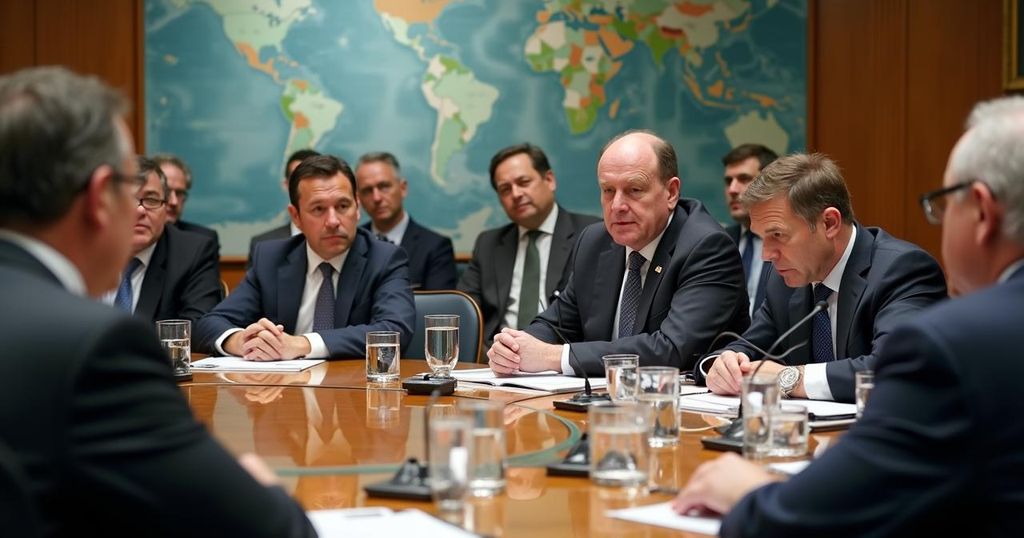The upcoming COP29 summit in Azerbaijan seeks to establish a realistic climate finance goal of hundreds of billions, a reduction from the trillions needed to address climate change. As developing nations call for more funding to combat disasters fueled by climate change, over 100 world leaders are expected to attend, demonstrating the critical nature of these negotiations amidst rising global temperatures. Key leaders stress the importance of cooperation without blame.
Azerbaijan is set to host the COP29 United Nations climate summit, where leaders anticipate establishing a climate finance agreement that may total “hundreds of billions” of dollars. This figure represents a significant reduction from the estimated trillions of dollars that are urgently needed to combat climate change’s causes and effects. Negotiators will convene in Baku next month to devise a new financing goal, succeeding the prior annual commitment from wealthier nations of $100 billion to support developing countries. Yalchin Rafiyev, chief negotiator for the COP29 presidency, confirmed that there is now consensus among parties on the substantial financial requirements, which are estimated to be in the trillions, yet there remains skepticism regarding the public sector’s capability to mobilize more than hundreds of billions. The importance of this agreement is underscored by the accelerating impacts of climate change, which manifests through natural disasters such as hurricanes and extreme heat, thereby necessitating increased funding for developing countries to adapt to these challenges and reduce their own greenhouse gas emissions through investments in renewable energy solutions. As global temperatures have risen approximately 1.3 degrees Celsius above pre-industrial levels, with projections suggesting that 2024 could become the warmest year recorded, experts warn that the objective of limiting temperature rises to 1.5 degrees Celsius is becoming increasingly unattainable without escalated action. The upcoming negotiations will see participation from over 100 global leaders, including 61 presidents, 38 prime ministers, and two crown princes, reflecting a critical mass of political engagement vital for addressing these pressing issues. This is a decrease from the more than 160 leaders who attended last year’s summit in Dubai. COP29 President Mukhtar Babayev noted, “We have done well to narrow down options, and the possible shapes of landing zones are coming into view. But we can clearly see the divides that the Parties still need to bridge.” Azerbaijan’s President Ilham Aliyev emphasized the importance of cooperation, stating, “While states have common but differentiated responsibilities, they should put aside disagreements, stop blaming each other and find common ground. We cannot afford to waste time on defining who is guilty for global warming, or who caused more environmental harm.”
The issue of climate finance is pivotal in the global effort to combat climate change, especially when considering the disparity between developed and developing nations. Traditionally, wealthier countries have pledged financial resources to assist lower-income nations in addressing both the challenges associated with climate change and the essential transition to sustainable energy systems. The new financial goals discussed at COP29 aim to replace the existing commitment of $100 billion annually, reflecting an evolving landscape of international climate agreements and the dire need for more substantial financial support.
In conclusion, the COP29 climate summit in Azerbaijan represents an essential milestone in global climate finance negotiations. While leaders recognize the need for trillions of dollars to effectively tackle climate change, the immediate focus will be on establishing a more achievable target of “hundreds of billions”. As participating nations grapple with these financial commitments, the emphasis on collaborative action and the reduction of blame among parties will be crucial for meaningful progress.
Original Source: wmbdradio.com






